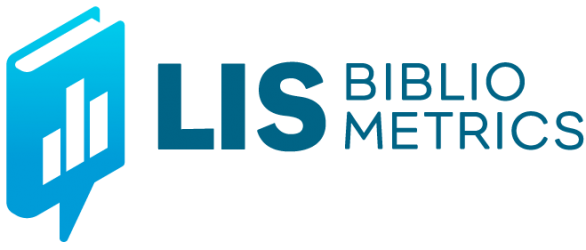An interview with Juan Gorraiz, director of the Bibliometrics and Publications Strategies department at Vienna University Library
Nicolas Robinson interviews Juan Gorraiz, who works at Vienna University Library as a professional bibliometrician. Juan is editing a special issue for Frontiers in Research Metrics and Analytics on best practices in bibliometrics. Along with his professional activity giving research support to scientists and conducting bibliometric analyses at his institution, he has authored more than 60 scientific publications in journals such as Scientometrics, Research Evaluation, and Journal of Informetrics. Furthermore, he is one of the promoters and founders of the European Summer School for Scientometrics and organized the STI and ISSI Conferences in 2008 and 2013 respectively. In this interview he talks about his personal experience as a practitioner and scientist, how to bridge between both communities and the role professionals should and present challenges impeding a more fluid communication between these two communities.
NR. You are editing a special issue on best practices in bibliometrics, in which you call to bridge the gap between research and professionals conducting bibliometric analysis. You are an example yourself of a professional bridging to academia with a long publication record and a well-established reputation in academia. How did you manage to make that leap and do you find that since then your professional trajectory has benefited from the scientific one?
GJ. To bridge the gap between research and professionals conducting bibliometric analyses is not as easy as one might think. The priority in my task as a librarian in charge of a service-oriented department is to fulfill all the requests of the target groups to which we address our services and not to publish. These services are required in the very short term and we already have problems avoiding quick and dirty practices. This hampers the continuous engagement and dedication that require serious research and investigation. There have been many times when we have not been able to participate in an auspicious project or have missed the opportunity to publish on a hot topic because we have not had the necessary time. Only patience and perseverance help in those cases.

On the other hand, the problems and difficulties we have encountered in carrying out our services have served as a suggestion or stimulation for new publications that have aroused considerable interest. Of course, I think that my professional trajectory has benefited from the scientific one, and, therefore, I recommend all professionals conducting bibliometric analyses, and especially librarians, to participate in the scientific discourse and public debate actively. This is the reason that motivated me to edit a special issue on this topic. My scientific trajectory has surely benefited from the experiences gathered in our services, by clearly revealing what are the needs and applications of our theories and speculations.
I recommend all professionals conducting bibliometric analyses, and especially librarians, to participate in the scientific discourse and public debate actively.
NR. Do you think that current research on bibliometrics responds to professional needs? Where do you think are the gaps and what can be done to improve this?
GJ. In my opinion, current research on bibliometrics does not respond to professional needs appropriately. Of course, it should also not only respond to professional needs. Without a solid and innovative theoretical background, we could never build a new discipline and achieve any goal. However, I think that we run the risk of converting bibliometrics into a dead discipline.
Let us think, for example, what has been the use of the more than one hundred variations of the h-index that have been published, if none has been nor will be applied. What real application do they find all these correlations published? What meaning or relevance do all these correlations that proliferate throughout the journal issues have for the scholar community?
From my point of view, a research field is like a language, it dies if it does not find application. The lack of examples of practical applications contrasts with the growing number of manifests and recommendations that appear constantly (e.g., Leiden, DORA). Concrete examples of responsible use of bibliometrics are needed to revive, reinforce and refresh this young discipline.
The lack of examples of practical applications contrasts with the growing number of manifests and recommendations that appear constantly
NR. Which are in your opinion the most urgent challenges professionals are facing and on what specific topics would you like to see some contributions?
GJ. Without any doubt, the responsible use and application of bibliometric analyses for academic evaluation and other purposes. What I find most urgent is that we can learn from each other and identify the problems and constraints we have encountered in the practical applications of bibliometrics.
Any well founded and documented practical application of bibliometric and/or scientometric methods is welcomed. Naturally, the new metrics are in vogue and their applications can be of great interest. This does not mean that citation analyses have lost their relevance or importance. On the contrary, in my opinion, altmetrics have reinforced and revalued them.
NR. Now let’s talk about the other side, the academic one. Which are the current concerns in academia, how do you feel they mismatch the professional ones?
GJ. As I said before, the risk we run is that bibliometrics will become a closed discipline, where bibliometricians locked in their ivory towers, devote themselves to their elucubrations and to inventing indicators that nobody will ever use. Bibliometricians doing the “heavy research” are generally much more educated and interested in the math and statistics. But, in my opinion, it is not only that practitioners don’t have that sort of education but also that the targeted group in the praxis (administrators, rectors, etc.) also does not have this education and reject very complex and sophisticated analyses. Practitioners are obliged to keep it simple and easy to understand!
Practitioners are obliged to keep it simple and easy to understand!
On the other hand, we introduce indicators that are in contradiction with the manifestos and recommendations we make. For example, is introducing Journal Impact Measures (like SJR and SNIP) in the area of humanities not in clear disagreement with the Leiden manifesto?
NR. There are important changes happening right now in the publishing scene. The Journal of Altmetrics and Frontiers in Research Metrics and Analytics were launched a couple of years ago, last year it was Quantitative Science Studies, and this year Scholarly Assessment Reports. Do you feel that the growth of journals in the field will open the door to more professional-related contents?
GJ. In any case, the proliferation of bibliometric journals illustrates the great and increasing interest in this discipline or research field nowadays. In principle most of them welcome this type of publication but my experience is that they usually reject them and unfortunately with very debatable and weak arguments. Something similar happens with the publication of negative results. In theory, they are accepted in many journals, but it is very difficult to publish them. I hope that our attempt, this special issue in Frontiers, opens the floor for this debate and stimulates their publication in many other bibliometric journals. This would already be a reward for our initiative. However, my hope is that new journals will succeed in ensuring continuity in the publication of such results.
NR. Do you think that these journals have sufficient bibliometric practitioners on their editorial boards? Do you feel this should be the case?
GS. I do not believe that the solution is to increase the number of practitioners on the editorial board but to consider this issue within the scope of the journal and to inform the reviewers adequately.
NR. These new journals are all Open Access, but they follow an APC model, don’t you think that might restrict the opportunities of professionals like yourself to become involved with academia, as they lack the resources to finance their publications? Are there any possibilities for professionals willing to submit to your special issue on having a reduced price or remove the APCs?
GJ. I’m so glad you’re asking this question. My big concerns as editor of this special issue for Frontiers are: First, this issue is part of an Open Access journal (authors have to pay to publish) and most of the professionals conducting bibliometric analyses (librarians, etc.) do not receive any help to afford and cover these costs. The truth is, there’s not a lot of flexibility to reduce or escape payment. For every eight or ten publications, you might get one of them for free. Furthermore, most of the deals that universities and other institutions have reached with the publishers do not generally apply to administrative staff and few librarians can take advantage of them. I consider this unfair and negative, as it is very important that librarians are involved in the discourse. “Library and Information sciences” is just another discipline, like religion, politics or economics, why does the community still resist considering librarians as researchers, even if they work as administrative staff?
Why does the community still resist considering librarians as researchers, even if they work as administrative staff?
One more impediment to participation in this issue is that this magazine, or part of Frontiers, is unfortunately not indexed in either WoS Core Collection or Scopus, and that is having a negative effect on our call. Most reputed scientists are also reluctant to publish there since such publications do not count for their curriculum.
These problems will be encountered by all new journals and it is the responsibility of their editors to resolve them quickly, as well as of Clarivate Analytics and Elsevier to ensure a transparent and rapid treatment for new journals, if they want their products to provide an adequate and quick quality of coverage and continue to maintain their prestige.

Nicolas Robinson is a social scientist specialized in bibliometrics and research evaluation. He is currently a Marie Curie fellow at the department of Applied Mathematics (DIAM) at TU Delft under the Leading Fellows programme. He is also member of the Steering Committee of the European Summer School for Scientometrics. He has published over 40 articles and book chapters in the field of bibliometrics and research evaluation on topics such as scientific mobility, altmetrics or social sciences and humanities research assessment among others.
![]() Unless it states other wise, the content of the
Bibliomagician is licensed under a
Creative Commons Attribution 4.0 International License.
Unless it states other wise, the content of the
Bibliomagician is licensed under a
Creative Commons Attribution 4.0 International License.

One Reply to “”